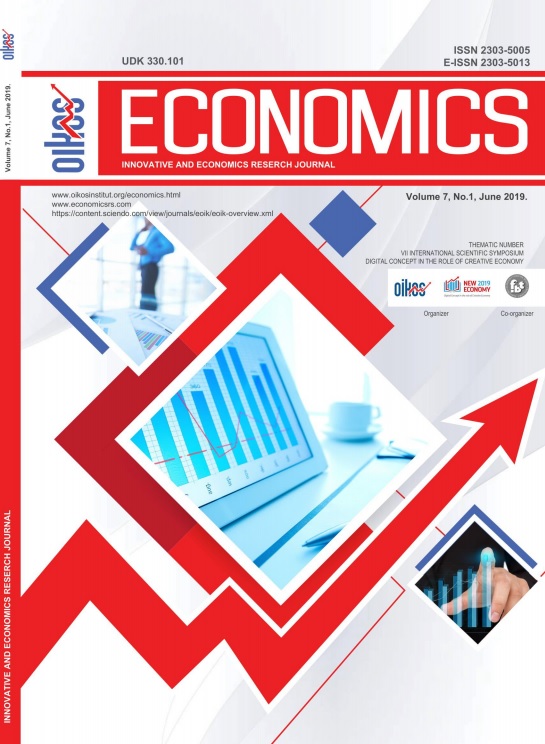HOW IMPORTANT IS GAMBLING IN NATIONAL GDP: CASE STUDY FROM AUSTRIA, CROATIA, ITALY AND SLOVENIA
DOI:
https://doi.org/10.2478/eoik-2019-0004Abstract
Purpose – The situation in the field of gambling is changing due to the rise of Internet and Mobile
gambling. In general gambling consumption is increasing every year, but the distribution of
consumption has radically changed from Land Based gambling to Remote gambling. The purpose
of this article is to present an overview of the world gambling industry and a specific overview
in Austria, Croatia, Italy and Slovenia in order to find some main similarities and differences in
observed period.
Design/Methodology/Approach – The main research question is How important is gambling for the
involved countries and what proportion of the national GDP does the gambling revenue account
for? This paper presents the analysis of five statistical databases for the last sixteen years in order
to find out some patterns, cyclical or seasonal features or other significant information that allows
us to do forecasting of the future revenue with a certain degree of accuracy. We have systematically
searched and collected data from the World Bank and the National Statistical Offices websites of
the given countries. Statistical methods were used for benchmark analysis, while Box and Jenkins
approach and ARIMA modelling were used for forecasting.
Findings – The smallest increase was recorded in Slovenia and the largest in Italy. The same effects
were also observed in the GDP of these countries. Thus, the state budgets of Croatia and Italy are
increasingly dependent on gambling taxes. It also has negative wages. The gambling addictions
among the locals have become more frequent as well.
Originality of the research – The article shows the forecasts of the gambling revenue and its share
in the GDP by 2027. We want to alert decision makers to adopt appropriate policies. States need
to rethink their views on gambling and the excessive dependence of the state budget on gambling
taxes. This is the first time a single comparative analysis of these countries and the above mentioned
forecast has been conducted.
